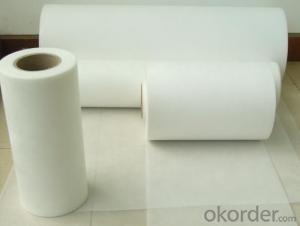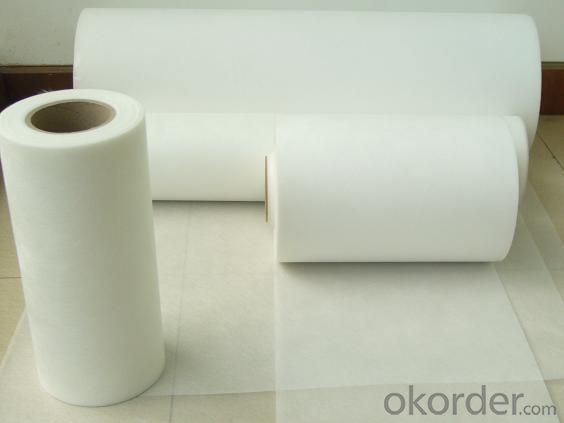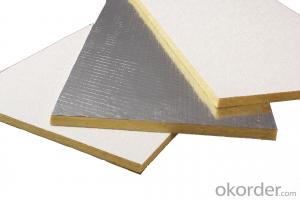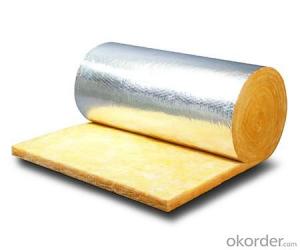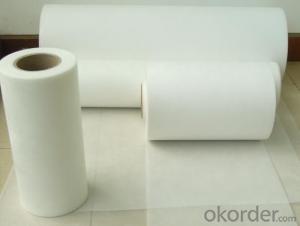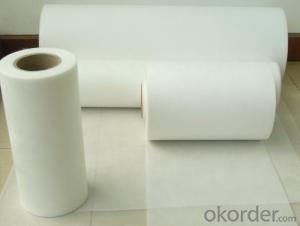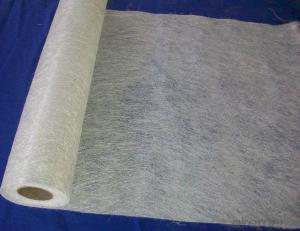Fiberglass Mat Tissue E-Glass & C-Glass Fiber Surface Tissue Mat
- Loading Port:
- Qingdao
- Payment Terms:
- TT or LC
- Min Order Qty:
- 144000 m²
- Supply Capability:
- 1440000M2 Per Month m²/month
OKorder Service Pledge
OKorder Financial Service
You Might Also Like
1.Brief Introductions
Surfacing Tissue mainly used in the surface layers of FRP products. It features even Fiber distribution, soft feel, level and smooth fiber surface, less glue content, quick resin soak and good pattern fitness. It can improve the product surface property on corrosion resistance, compressive strength, seepage resistance, and longer service life. It is also suitable for spraying; pattern pressing and other FRP pattern technology.
2.Product Features
Fast breakdown in styrene
Fiber dispersed evenly
Low binder content
Superior acid corrosion resistance
3.Specifications
Property | Area Weight | Moisture Content | Size Content | Breakage Strength | Width |
(%) | (%) | (%) | (N) | (mm) | |
Mathods | IS03374 | ISO3344 | ISO1887 | ISO3342 | |
S-SM20 | ±7.5 | ≤0.20 | 6-8 | ≥20 | 40-3000 |
S-SM30 | ≥30 | ||||
S-SM50 | ≥40 | ||||
S-HM20 | ≥20 | ||||
S-HM30 | ≥30 | ||||
S-HM50 | ≥40 |
Special specification can be produce according to customer requirements.
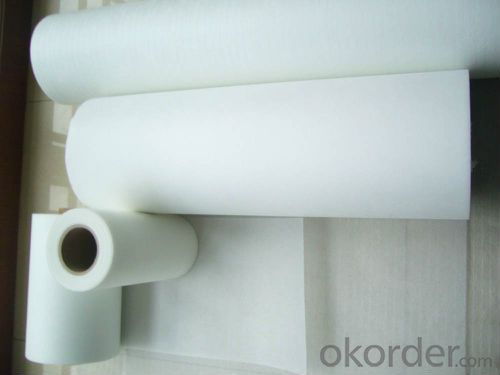
4.FAQ
Product packaging
Each Surface Tissue is wound onto a paper tube which has an inside diameter of 76mm and the mat roll has a diameter of 330mm. The mat roll is wrapped up with plastic film,and then packed in a cardboard box or wrapped up with kraft paper. The rolls can be vertically or horizontally placed. For transportation, the rolls can be loaded into a cantainer directly or on pallets.
Product storage:
Unless otherwise specified, Chopped Strand Mat should be stored in a dry, cool and rain-proof area. It is recommended that the room temperature and humidity should be always maintained at 15℃~35℃ and 50%~75% respectively.
- Q: How is fiberglass mat tissue used in the production of windshields?
- The unique properties and functions of fiberglass mat tissue make it a crucial component in windshield production. To strengthen and increase the durability of the glass, manufacturers use fiberglass mat tissue as a reinforcement material. In the manufacturing process, a layer of fiberglass mat tissue is inserted between two layers of glass to create a laminated structure. This layer acts as a barrier, preventing the glass from shattering upon impact and holding it together for the safety of the vehicle occupants. By serving as a reinforcing material, fiberglass mat tissue improves the mechanical properties of the windshield. It enhances the impact resistance, reducing the likelihood of cracks or chips caused by stones, debris, or other objects. This reinforcement also provides structural integrity, allowing the windshield to withstand extreme weather conditions and vibrations without affecting its functionality. Moreover, fiberglass mat tissue aids in reducing noise transmission and vibrations. Its sound-damping properties contribute to a quieter and more comfortable driving experience by minimizing external noise from entering the vehicle cabin. Additionally, the use of fiberglass mat tissue enables the production of curved windshields. The material's flexibility allows it to conform to different shapes and contours, enabling manufacturers to create windshields with customized designs and improved aerodynamics. In conclusion, fiberglass mat tissue plays a vital role in windshield production. Its reinforcement properties enhance the strength and impact resistance of the glass, ensuring the safety of vehicle occupants. It also contributes to a quieter driving experience and enables the production of curved windshields with improved aerodynamics.
- Q: Is fiberglass mat tissue resistant to mold growth?
- Indeed, mold growth is effectively resisted by fiberglass mat tissue. The composition of fiberglass involves the interlacing of tightly woven glass fibers, yielding a substance highly impervious to moisture and mold. Moreover, fiberglass possesses a non-porous nature, signifying its inability to absorb water, thereby further deterring the proliferation of mold. Consequently, fiberglass mat tissue emerges as an optimal selection for circumstances necessitating mold resistance, such as insulation, wallboards, and various construction materials.
- Q: What is the moisture resistance of fiberglass mat tissue?
- The moisture resistance of fiberglass mat tissue is generally quite high. The material is typically made from fiberglass strands that are tightly woven together, creating a dense and water-resistant surface. This makes it highly effective in applications where moisture exposure is common, such as in the construction industry for roofing, insulation, and waterproofing purposes. Additionally, fiberglass mat tissue is often treated with special coatings or additives that further enhance its moisture resistance, making it even more durable and reliable in wet or humid environments. Overall, the moisture resistance of fiberglass mat tissue is a significant advantage and contributes to its widespread use in various industries.
- Q: Can fiberglass mat tissue be used for mold-making?
- No, fiberglass mat tissue is not typically used for mold-making. Fiberglass mat tissue is a lightweight material made from randomly oriented glass fibers bonded together with a binder. It is commonly used in insulation, construction, and automotive industries for reinforcement purposes. For mold-making, other materials such as silicone, latex, or polyurethane are more commonly used. These materials have the necessary properties to create flexible and accurate molds that can reproduce intricate details. They are also easy to work with and can be poured or brushed onto the original object to create a mold. Fiberglass mat tissue, on the other hand, lacks the flexibility and accuracy required for mold-making. It is not designed to be easily molded into complex shapes or capture fine details. Additionally, it may not provide the desired level of flexibility needed to remove the original object from the mold without causing damage. Therefore, it is recommended to use specific mold-making materials that are specifically designed for this purpose, rather than attempting to use fiberglass mat tissue.
- Q: Is fiberglass mat tissue biodegradable?
- No, fiberglass mat tissue is not biodegradable.
- Q: Is fiberglass mat tissue suitable for electrical insulation applications?
- Yes, fiberglass mat tissue is suitable for electrical insulation applications. Fiberglass mat tissue is made from glass fibers that are bonded together with a resin, creating a strong and durable material. It has excellent electrical insulation properties, such as high dielectric strength and low electrical conductivity. This makes it ideal for applications where electrical insulation is required, such as in transformers, motors, and electrical switchgear. Additionally, fiberglass mat tissue is also resistant to moisture, chemicals, and heat, further enhancing its suitability for electrical insulation applications.
- Q: What is the thermal resistance of fiberglass mat tissue?
- The thermal resistance of fiberglass mat tissue depends on various factors such as the thickness of the mat, the density of the fibers, and the presence of any additional materials or coatings. Generally, fiberglass has a low thermal resistance, meaning it is a good conductor of heat. However, when used as insulation, the thickness and density of the fiberglass mat can increase its thermal resistance, making it more effective at reducing heat transfer. It is important to note that specific values for thermal resistance can vary depending on the specific product and application, so it is recommended to consult the manufacturer's specifications for accurate information.
- Q: Can fiberglass mat tissue be used for making lightweight partitions?
- Yes, fiberglass mat tissue can be used for making lightweight partitions. Fiberglass mat tissue is a lightweight material that is made from fine fibers of glass. It is known for its strength, durability, and flexibility, making it a suitable choice for constructing partitions. When used for making partitions, fiberglass mat tissue can be layered between other lightweight materials such as gypsum boards or plywood to provide additional strength and stability. The fiberglass mat tissue acts as a reinforcement layer, preventing cracks and increasing the overall structural integrity of the partition. Furthermore, fiberglass mat tissue has excellent fire-resistant properties, which is a crucial factor when constructing partitions. It helps to contain fire and prevent its spread, ensuring the safety of the occupants. In addition to its strength and fire resistance, fiberglass mat tissue also offers sound insulation properties. It can help to reduce noise transmission between different areas, making it an ideal material for creating private and quiet spaces. Overall, fiberglass mat tissue is a suitable choice for making lightweight partitions due to its strength, durability, fire resistance, and sound insulation properties. It can be effectively used in various applications such as residential buildings, offices, hotels, and other commercial spaces.
- Q: What is the weight of fiberglass mat tissue per square meter?
- The weight of fiberglass mat tissue per square meter can vary depending on the specific product and manufacturer. However, on average, fiberglass mat tissue typically weighs around 100-300 grams per square meter.
- Q: What are the potential health and safety concerns associated with working with fiberglass mat tissue?
- Working with fiberglass mat tissue can pose potential health and safety concerns. The fine fiberglass particles present in the air during handling and cutting can be inhaled, leading to respiratory issues such as irritation, coughing, and difficulty breathing. Prolonged exposure to these particles may also result in long-term lung damage. Additionally, direct skin contact with the fiberglass can cause skin irritation and allergic reactions. Hence, it is important to use appropriate personal protective equipment, such as gloves, masks, and goggles, to minimize these risks and ensure a safe working environment.
Send your message to us
Fiberglass Mat Tissue E-Glass & C-Glass Fiber Surface Tissue Mat
- Loading Port:
- Qingdao
- Payment Terms:
- TT or LC
- Min Order Qty:
- 144000 m²
- Supply Capability:
- 1440000M2 Per Month m²/month
OKorder Service Pledge
OKorder Financial Service
Similar products
Hot products
Hot Searches
Related keywords
